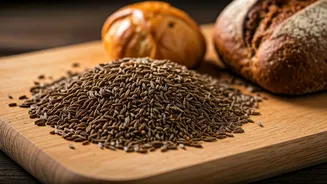Hydration's Vital Role
Hydration is fundamentally important for human health, and its importance is often underestimated. Water constitutes a significant portion of our body
weight, facilitating numerous biological processes. Proper hydration ensures that our bodily functions operate optimally. It aids in the efficient transport of nutrients, oxygen, and hormones throughout the body. Furthermore, hydration is critical for the maintenance of body temperature, as well as the elimination of waste products via urine and sweat. Dehydration, on the other hand, can lead to decreased physical and cognitive performance, fatigue, and headaches. Ensuring adequate water intake throughout the day is therefore an easy yet essential step toward good health.
Signs of Dehydration
Recognizing the signs of dehydration is critical in maintaining health and wellbeing. These signs can manifest in various ways, from mild discomfort to more serious symptoms. One of the earliest signs is often thirst, which is the body's natural signal to replenish fluids. Headaches, too, can indicate dehydration; the brain tissues may contract due to lack of water. Other common signs include feeling lightheaded or dizzy, particularly when standing up quickly. Dark-colored urine is another key indicator; it signals that the kidneys are conserving water. In severe cases, dehydration can result in muscle cramps, fatigue, and a rapid heartbeat. Being aware of these signs and taking proactive steps to stay hydrated can prevent dehydration and the associated negative effects.
Optimal Hydration Strategies
Staying hydrated doesn't have to be complicated, and there are many practical strategies one can use to maintain optimal hydration levels. One straightforward method is to carry a reusable water bottle and sip on it throughout the day. Setting reminders, whether through a phone app or simple mental notes, is also highly beneficial. Adding flavor to your water, such as slices of lemon or cucumber, can increase its appeal and encourage you to drink more. Consuming hydrating foods, such as fruits and vegetables with high water content (e.g., watermelon, spinach, cucumbers), also contributes to overall hydration. Paying attention to your urine color is another effective approach. If it’s dark yellow, that’s a clear indication that you need to drink more water.
The Power of Rest
Rest is equally vital, working in tandem with hydration to support overall health and recovery. It provides the body with the opportunity to repair and rejuvenate itself. Sleep is the most obvious form of rest, providing a window for physiological restoration, including the release of essential hormones for growth and repair. Adequate sleep can boost the immune system, improve mental clarity, and elevate mood. Rest also includes incorporating breaks during the day, whether through short periods of meditation, mindful breathing, or simply stepping away from your work to clear your head. This allows the body and mind to recover from the stresses of daily life, preventing burnout and increasing overall well-being.
Prioritizing Sleep Quality
Enhancing sleep quality is crucial for overall rest and recovery. This involves creating a sleep-conducive environment, such as a cool, dark, and quiet bedroom. Developing a consistent sleep schedule – going to bed and waking up at the same time each day, even on weekends – can regulate the body's natural sleep-wake cycle (circadian rhythm). Minimizing screen time (phones, tablets, and computers) before bed is equally important, as the blue light emitted from these devices can interfere with the production of melatonin, the hormone that regulates sleep. Engaging in a relaxing bedtime routine, such as reading, listening to calming music, or taking a warm bath, can also prepare your body for sleep. Creating these sleep habits can enhance the quality of your rest and bolster your overall health.
Mental Relaxation Techniques
Beyond physical rest, incorporating mental relaxation techniques is also essential for overall well-being. Meditation can be a powerful tool for reducing stress and promoting a sense of calm. Even a few minutes of daily meditation can help to quiet the mind and improve focus. Mindfulness practices, such as paying attention to your breath or the sensations in your body, can also bring you into the present moment, alleviating anxieties about the future or regrets about the past. Engaging in hobbies and activities that bring you joy can also serve as effective methods of mental relaxation, offering a welcome break from daily pressures. The objective is to proactively manage the stresses of modern life, thus promoting a balanced and healthy lifestyle.
Combining Hydration & Rest
Optimizing recovery involves integrating both hydration and rest into your daily life. The two are closely interconnected. When you are adequately hydrated, your body can function more efficiently, allowing for better sleep and deeper rest. Similarly, good rest supports the body’s ability to process and utilize fluids effectively. Creating a routine that prioritizes both is a winning strategy. Start your day with a glass of water, and ensure you're drinking water consistently throughout the day. Schedule regular breaks to avoid burnout, and create a calming evening routine that prepares you for sleep. Consistently taking these simple steps can significantly enhance your overall well-being, boosting your energy levels, and improving your ability to manage the stresses of daily life.




















